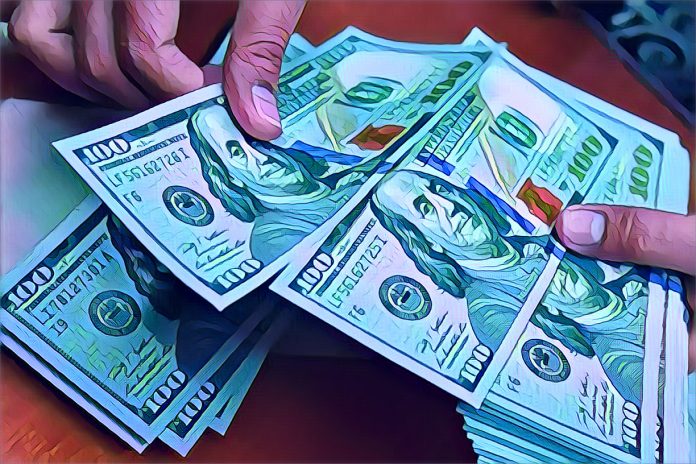Nigeria’s central bank has increased its dollar inflow to $1.3 billion in February 2021, four times higher than the $323 million it recorded in January 2021, according to data from the bank.
The surge In dollar inflow was attributed to the central bank’s efforts to attract foreign investors and to ease the pressure on the naira, the local currency, which has been depreciating against the dollar in the parallel market.
The central bank has introduced several measures to lure foreign investors, such as offering higher interest rates on its open market operations (OMO) bills, allowing foreign portfolio investors (FPIs) to trade in the spot and derivatives markets, and providing a special window for investors and exporters (I&E) to access foreign exchange.
The central bank has also increased its supply of dollars to the I&E window, where the exchange rate is determined by market forces, rather than the official rate set by the bank. The I&E window received $554 million in February 2021, up from $139 million in January 2021.
The Increase in dollar inflow has helped to stabilize the naira in the I&E window, where it closed at 410.25 naira per dollar on March 5, 2021, compared to 394.67 naira per dollar on January 29, 2021.
However, the naira has continued to weaken in the parallel market, where it traded at 480 naira per dollar on March 5, 2021, compared to 475 naira per dollar on January 29, 2021. The parallel market is where most Nigerians buy and sell foreign currency, especially for personal and business purposes.
The gap between the official and parallel market rates reflects the persistent demand for dollars in Nigeria, which is Africa’s largest economy and biggest oil producer. Nigeria relies heavily on oil exports for its foreign exchange earnings, but the oil sector has been hit hard by the COVID-19 pandemic and the low oil prices.
The dollar shortage has also affected the country’s economic recovery, as many businesses and industries depend on imported inputs and raw materials. Nigeria’s economy contracted by 1.92% in 2020, the worst performance since 1991, according to the National Bureau of Statistics.
The central bank has said that it is committed to ensuring the stability of the naira and the availability of foreign exchange for legitimate transactions. The bank has also said that it is working with the government and other stakeholders to diversify the economy and reduce its dependence on oil.
The central bank’s efforts to boost dollar inflow have been welcomed by some analysts and investors, who say that they will improve the country’s external reserves, ease the balance of payments pressure, and support the naira’s value.
However, some experts have cautioned that the central bank’s measures are not sustainable in the long run, and that they may expose the bank to exchange rate risks and inflationary pressures. They have also urged the central bank to adopt a more flexible and unified exchange rate regime, and to address the structural and fiscal challenges facing the economy.
The central bank’s measures also face some uncertainties, such as the volatility of the global oil market, the resurgence of the COVID-19 pandemic, and the political and security tensions in the country.
The central bank’s measures also present an opportunity for a more inclusive and transparent approach to the management of the foreign exchange market, based on the principles of market efficiency, competitiveness and accountability. As the International Monetary Fund (IMF) has stated, “a more flexible and market-based exchange rate would support the recovery, ease external imbalances, and improve competitiveness.”
Source: BusinessDay



